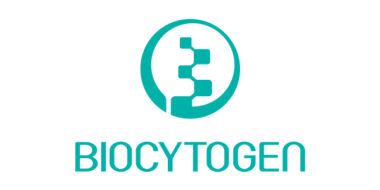3 September 2024
EMBARGOED UNTIL 10pm AEST 2 SEPTEMBER 2024
Public health and lung health organisations have strongly criticised tobacco giant Philip Morris International (PMI) for its entry into the inhaler market and its association with a company implicated in the opioid crisis. They are urging the health and medical community to join their boycott of these entities.
The Thoracic Society of Australia and New Zealand (TSANZ) and the Public Health Association of Australia (PHAA) are sounding the alarm about the hidden repercussions of the 2021 PMI acquisition of medicine maker Vectura. They caution that consumers using Vectura products may unknowingly be supporting PMI, a company with a longstanding history of exacerbating global health challenges and smoking.
In a concerning development this year, Vectura partnered with Mundipharma to reformulate the asthma medication Flutiform. Mundipharma, closely linked to the opioid crisis that has claimed over 600,000 lives globally, shares ownership ties with Purdue Pharma, which played a significant role in the epidemic.
“This disturbing alliance undermines public health initiatives and perpetuates a destructive cycle where Big Tobacco profits from selling harmful products like cigarettes and e-cigarettes, only to profit again from selling treatments for the damage they cause,” said Professor Anne Holland, President of the Thoracic Society.
"The corporate strategies of companies like Philip Morris International are fundamentally incompatible with the mission of promoting lung health in Australia and New Zealand. Our medical and scientific communities must now confront the implications of Vectura’s integration into PMI and its collusion with Mundipharma," Professor Holland added.
Vincent So, CEO of the Thoracic Society, stated, “Philip Morris International’s approach with Vectura is akin to setting a neighbour’s house on fire and then selling them the water to extinguish it.”
“Mundipharma’s ties to Purdue Pharma, infamous for its role in the opioid crisis, further necessitate scrutiny of the public health and medical community’s engagement with this company. Both are owned by the Sackler family, whose business practices have inflicted widespread harm,” So continued.
Since October 2021, the Thoracic Society, along with other members of the Lung Health Alliance, have refused to engage with any entities forming new partnerships with the Vectura group. Mundipharma is the first pharmaceutical company to cross this red line.
The Thoracic Society and the Public Health Association have united to extend that ban to Mundipharma across all its business lines, saying the highest standards of patient care and ethical responsibilities must be upheld.
The organisations strongly urge all medical societies and health-related organisations to back their efforts to cease partnerships with Mundipharma.
“By taking a decisive stand against the entanglement of healthcare with tobacco profits, we reaffirm our commitment to a future where public health remains untainted by the legacy of tobacco and e-cigarettes,” Adjunct Professor Terry Slevin, CEO of the Public Health Association of Australia, said.
“Together, we can navigate these complex ethical challenges and continue to champion the wellbeing of patients, advancing public health outcomes.”
ENDS
Contacts
Thoracic Society of Australia and New Zealand
Caroline Iuli, Senior Policy and Public Affairs Officer
Email: [email protected]
Phone: +61 2 9170 2613
Public Health Association of Australia
Paris Lord (he/him), Media and Communications Manager
Email: [email protected]
Phone: 0478 587 917
Further quotes attributable to TSANZ CEO Vincent So:
“No amount of marketing spin by Philip Morris International and Vectura can obscure the reality that tobacco companies sell products leading to the premature death of over half their consumers. This doublespeak is exemplified by the tobacco and e-cigarette industries lobbying against Health Minister Mark Butler’s commendable crackdown on e-cigarettes through the Albanese Government’s recent Therapeutic Goods and Other Legislation Amendment (Vaping Reforms) Act 2024, implemented on 1 July 2024.”
“The real question we should be asking is why taxpayers, through the PBS, are indirectly funding Big Tobacco and Philip Morris International, which owns Vectura, a company whose components are used in some respiratory medicines on the PBS. This situation seems at odds with Australia’s celebrated successes in tobacco control, including plain packaging and vaping reforms. It raises concerns about the alignment of public health goals with the unintended financial support of the very industry these reforms aimed to regulate.”
Contact details:
Thoracic Society of Australia and New Zealand
Caroline Iuli, Senior Policy and Public Affairs Officer
Email: [email protected]
Phone: +61 2 9170 2613
Public Health Association of Australia
Paris Lord (he/him), Media and Communications Manager
Email: [email protected]
Phone: 0478 587 917


